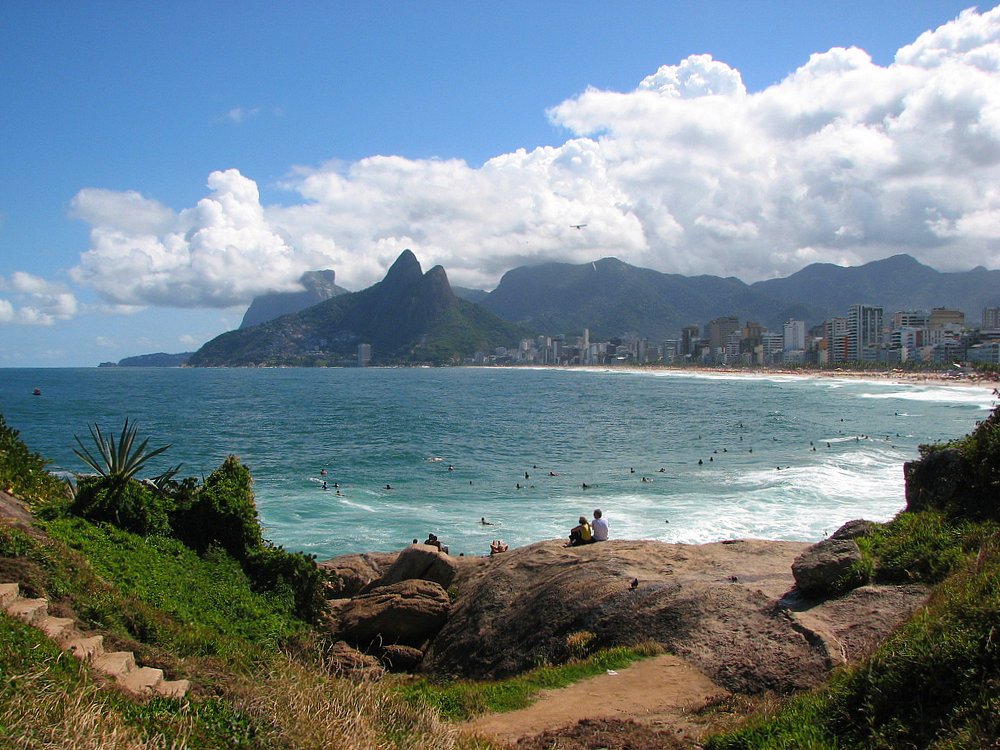Nov-2013
Tips for New Expats Living in Rio de Janeiro
Moving to a foreign country is an incredibly exciting experience for most expatriates, especially when they are about to begin a new adventure in a bustling and diverse metropolis like Rio de Janeiro. However, there can also be quite a steep learning curve when it comes to adapting to a new lifestyle under a new flag. Housing, public transportation, language barriers and cultural differences may all pose special challenges for recent transplants to Rio, but with the below tips from a seasoned expat, you’ll feel like a local in no time.
What are the options for home and apartment living in Rio?
Like any large city, space is at a premium in Rio, meaning you’ll pay a bit more than you may be accustomed to. Many apartment dwellers take on a roommate to help with the costs of living in a convenient and safe area with all the amenities of the city, and you can

Photography by Justin Vidamo
expect to pay anywhere from $250-$500 per month for a small apartment on an upper floor and closer to $1,000 or more for a ground floor unit with a bit of outdoor space. If you prefer to buy a home or condo, you may find yourself further out from the city center, but with more space and more parking availability. Many Rio expats prefer a short-term rental apartment or home when they first arrive, allowing them more time to discover their favorite parts of the city and their ideal permanent living space.
Is public transportation in Rio safe and reliable?
There are several public transit options available in Rio, and they are all quite cost-effective. There are standard city buses, which are considered reliable and safe during daylight hours, though they aren’t traditionally recommended to tourists or expats after dark for safety reasons, and they don’t have air-conditioning. There are also air-conditioned executive buses operated by Frescao, and they are a very popular and safe means of transportation in the city. The subway system, called the Metro, is known for being on time and is also considered quite safe. Private van service is also available if you don’t mind paying a bit more.
What are the best tips for expats during their first few days in Rio?
The first few days are likely to be a mixed bag of excitement and feelings of being overwhelmed. The best thing you can do is to establish your “home base.” Unpack so that your new abode feels like home, and begin to explore your immediate neighborhood. Find the nearest grocery store, coffee shop with WiFi access or anything else you can’t do without, and pick up area maps and city guides. Choose one or two tourist attractions you’ve been planning to visit anyway, like Corcovado or Ipanema Beach, and practice getting there using public transit.

Photography by Cyro A. Silva
How can an expat blend in and look like a local?
The best thing you can do is to start learning the Portuguese language before you arrive or as soon as you move. Brazilians are generally welcoming and will help you along as you’re learning, but grasping the language is important so you can detour from the usual tourist areas and spend time doing what the locals do and going where the locals go. You’ll want to dress like a native Brazilian, too, which means wearing flip flops and beachwear. Women will want to invest in a Canga, which can be used as both a beach blanket and a cover-up for the trip home. Lastly, the good folks in Rio always make lunch their biggest meal of the day, and eat very lightly at dinner. Adopt this custom so that you won’t be pegged as a newbie for ordering a large dinner.
Miki Mo
Latest posts by Miki Mo (see all)
- Important Things you Need to know Before Donating Eggs - October 2, 2023
- How to Manage the Compensation Money you Receive from Personal Injury Settlement - September 10, 2023
- Tips and Tricks to get Maximum Compensation after Facing a Car Accident - September 1, 2023




Leave a Reply